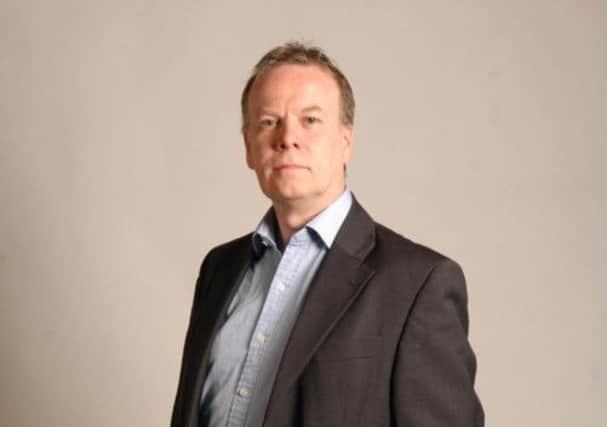Comment: Taxpayers to share ‘pretend profits’


The target price has always been 73.58p, the price booked in the accounts of UK Financial Investments, the body that manages the state’s holdings in the bailed-out banks, or 63p if the £2.3 billion fee Lloyds paid to exit the asset protection scheme is included.
On Friday it suddenly became 61p, which turns out to be the average price of Lloyds shares when the state bought them, rather than the price actually paid.
Advertisement
Hide AdAdvertisement
Hide AdThis is nonsense, as every investor knows, and when the government begins selling shares in Lloyds above 61p it will declare it is making a profit when clearly it is not.
The 61p price is important to Lloyds boss Antonio Horta-Osorio, who will get his £1.5 million bonus if the state sells a third of its 39 per cent stake above that price. Sadly for him, the shares fell 2 per cent on Friday to 53p, so he’ll have to wait a little longer to get his reward for at least moving Lloyds closer to making a profit.
The bank’s loss was substantially reduced and a profit is expected in the current financial year, assuming there are no further big compensation provisions.
It should help to hasten a move back into private hands, a decision that will be politically driven as the coalition looks for a boost ahead of the 2015 general election. It is probable that George Osborne, the Chancellor, will at least hint at a part-privatisation when he delivers his Budget speech on 20 March.
Lloyds looks in better shape for early privatisation, despite that eye-watering £6.8bn compensation bill for mis-selling payment protection insurance. Even so, Royal Bank of Scotland chairman Sir Philip Hampton hinted last week that the government could begin selling part of its 82 per cent stake in the bank as early as next year.
Investors were hardly persuaded and the shares tumbled in recent days closer to 300p, against the 500p break-even price. Using the 61p methodology, it is reported that a return on RBS begins at 407p, but that still requires a rise of more than a third in the current price.
Setting aside the losses at RBS, caused mainly by compensation, fines and a quirky debt calculation, it is also making progress with the underlying business, recording its highest profits since chief executive Stephen Hester took over in 2008.
He described reparations at RBS as akin to giving the house a spring clean, but he’ll need a lot of spit and polish to move the shares in his chairman’s timescale.
Nish moves into a higher gear
Advertisement
Hide AdAdvertisement
Hide AdSTANDARD Life chief executive David Nish may have taken a little time to get the engine up to full speed, but he appears to be catching the eye of the City.
He has refocused the group around a broader wealth management proposition, last week acquiring Newton Investment Management, while ensuring it delivers on core savings and pensions products.
Investors have bought into the story, driving the shares to a 52-week high that is 53 per cent up over the 12-month period.
Nish was criticised for failing to deliver a decent dividend last year, but analysts hope he could surprise with a one-off payment. It would put pressure on his peers, particularly RSA, which has announced savage cuts to its dividend, and Aviva, which reports annual figures on the same day this week.
But despite the restructuring he has undertaken, Nish wants a period of stability for the industry and hopes that the new pension arrangements will be given time to settle down without any further tinkering.
Ithaca’s Valiant defensive effort
THERE has been a steady flow of deals in the North Sea in recent months, and Ithaca’s £203m acquisition of Valiant on Friday may not be the last involving the buyer.
The offer represents only a 3 per cent premium to when Valiant put itself on the market, but Ithaca was seen as paying a full price that smacked of a defensive move to fend off potential acquirers.
However, they may reappear, encouraged by American hedge funds JEC Capital and Antheon, which own 7 per cent of Ithaca and have been keen for it to be sold.
Twitter: @TerryMurden1